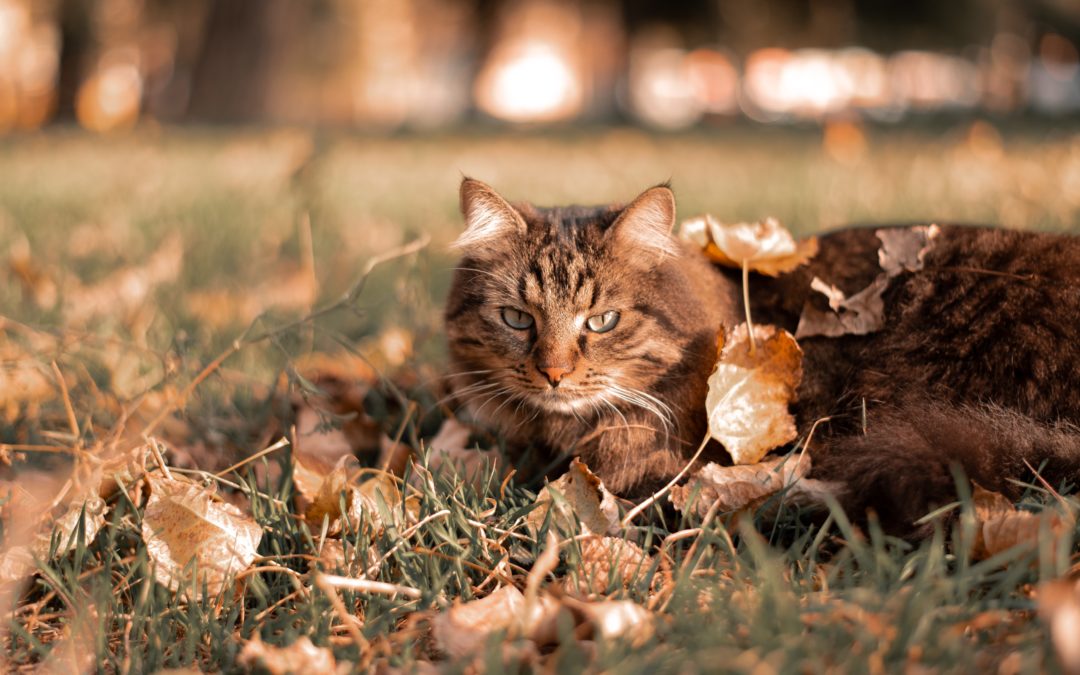During the hot summer months, pets tend to spend more time outdoors. While this can increase their likelihood of encountering pests such as fleas and mosquitos, parasites are a year-round problem. Unfortunately, fall can be one of the worst times of the year for fleas and other pesky parasites. As cooler weather approaches, it’s essential to keep your pet protected.
Luckily, our team at South Hyland Pet Hospital is here to share what you need to know about keeping your pets pest-free this fall.
Heartworm Prevention
While many pet owners know that heartworm prevention is essential for their pet’s long-term health, there are some myths regarding its use. Heartworm disease is caused by a dangerous parasite that is spread by mosquitos. Although mosquitos are more prevalent during the hot summer months, mosquitos can be a problem all year long.
It’s impossible to know when the last mosquitos will die, and the first mosquito will emerge. Because of this, the U.S. Food and Drug Administration (FDA) recommends that pets receive heartworm prevention year-round.
Additionally, stopping and starting heartworm prevention throughout the year can be problematic for your pet’s health. Heartworm prevention works by killing the heartworm larvae in your pet’s system, known as microfilariae. When heartworm prevention is stopped, microfilariae numbers can increase. If heartworm prevention is restarted without appropriate testing, the sudden die-off of microfilariae can cause a dangerous shock to your pet’s system.
The best way to keep your pet safe is to avoid gaps in your pet’s heartworm prevention. If your pet has been off heartworm preventatives for a period of time, please give us a call to have your pet tested before getting them back on an appropriate prevention plan.
Fighting Fall Fleas
With fall approaching, you may be looking forward to cooler weather and changing leaves. However, fall can also bring an abundance of flea problems. These pesky parasites thrive in cooler weather and have plenty of places to hide during the autumn months.
Tall grasses and fallen leaves are ideal locations for fleas to lie in wait for a passing pet. These can also be great hiding spots for other dangerous parasites, such as ticks. Because of this, improving your yard maintenance can significantly reduce your pet’s risk of exposure and help them remain pest free.
Another critical factor in fighting fall parasites is your pet’s hair coat. As the season changes, your furry friend may start to grow a thicker coat to prepare for cooler weather. Unfortunately, thicker hair coats provide more places for parasites to hide and thrive.
To keep your pet protected, make sure you are checking your pet regularly and staying up to date with their parasite prevention. Just like heartworm medication, flea and tick preventatives should be given year-round.
Final Thoughts
When it comes to parasite prevention, it’s essential to ensure your pet is protected all year long. As fall approaches, make sure your pet is on an appropriate prevention plan and consider ways you can limit their exposure.
If you have additional questions about your pet’s parasite prevention or would like to schedule an appointment, please give us a call at 952-884-1868. We look forward to hearing from you and helping your furry friends enjoy a pest-free fall!
Image credit: Pexels



